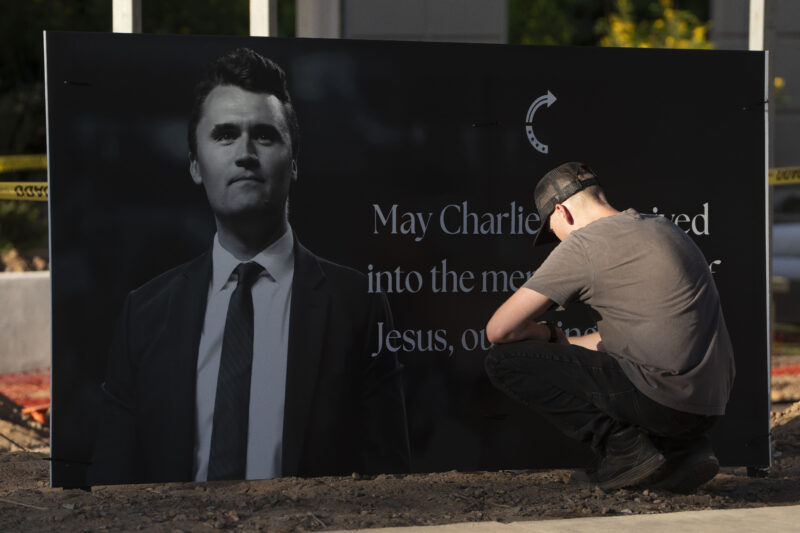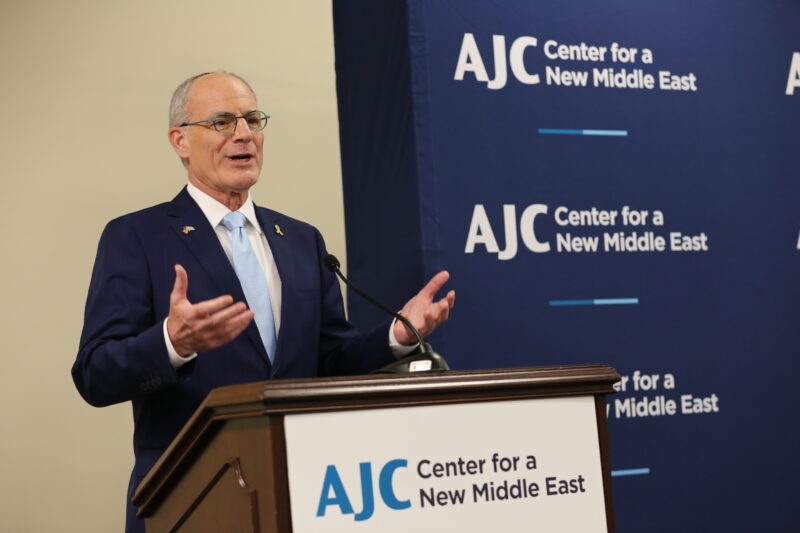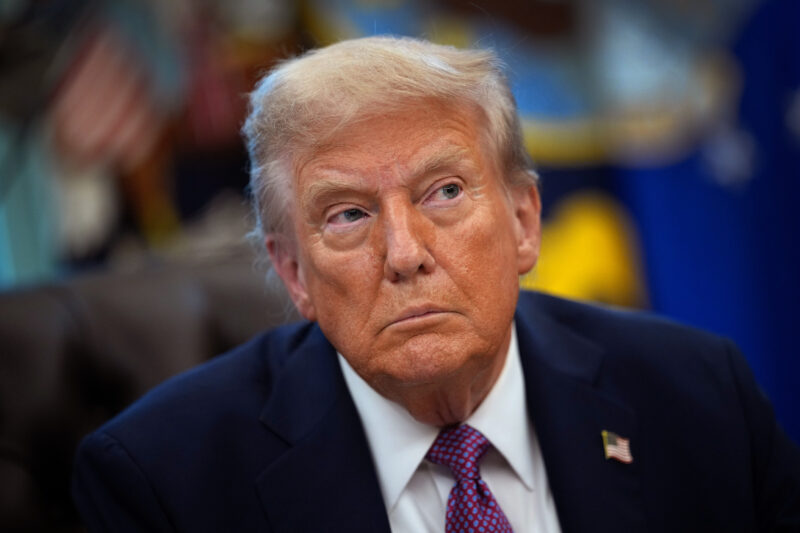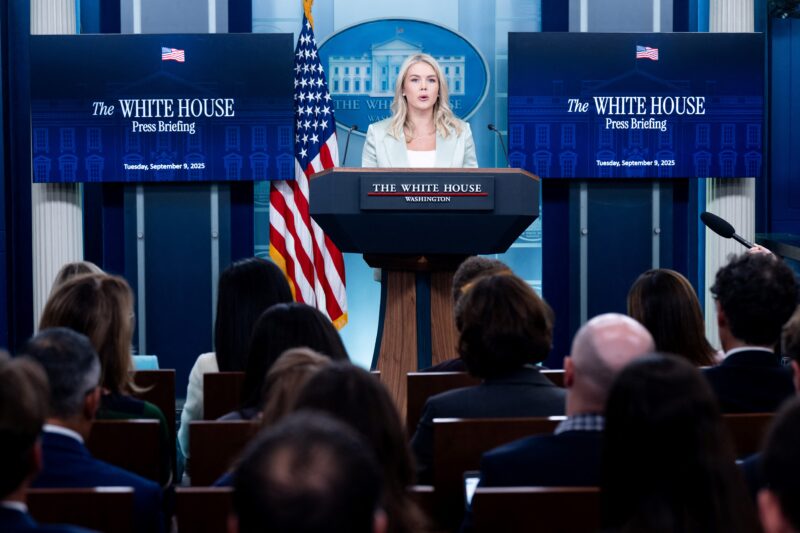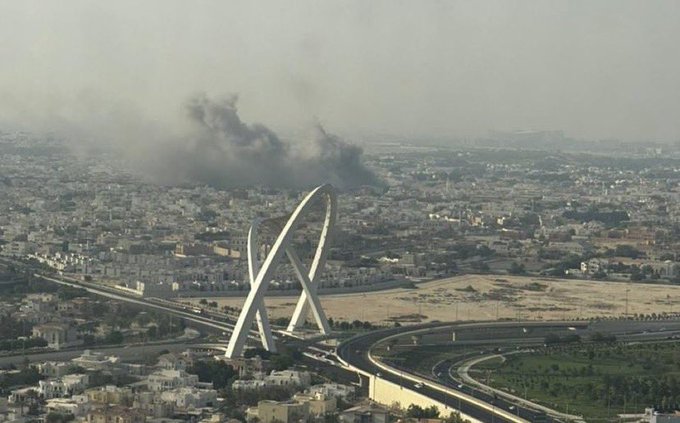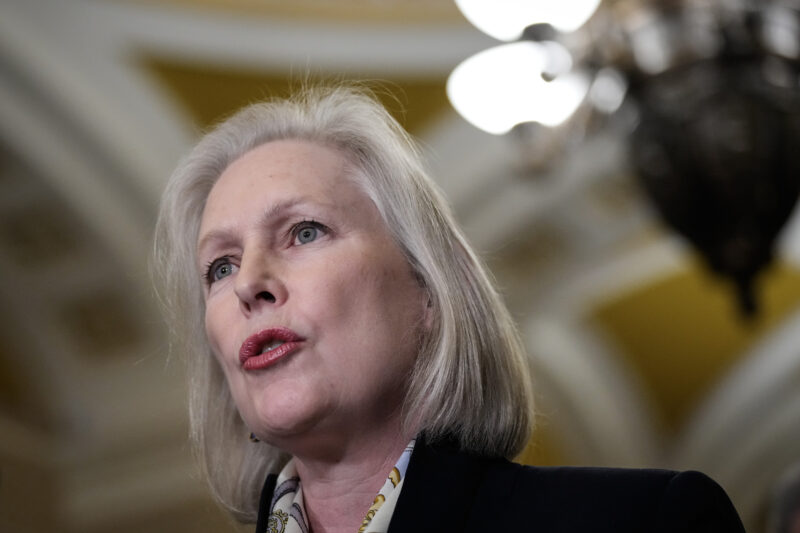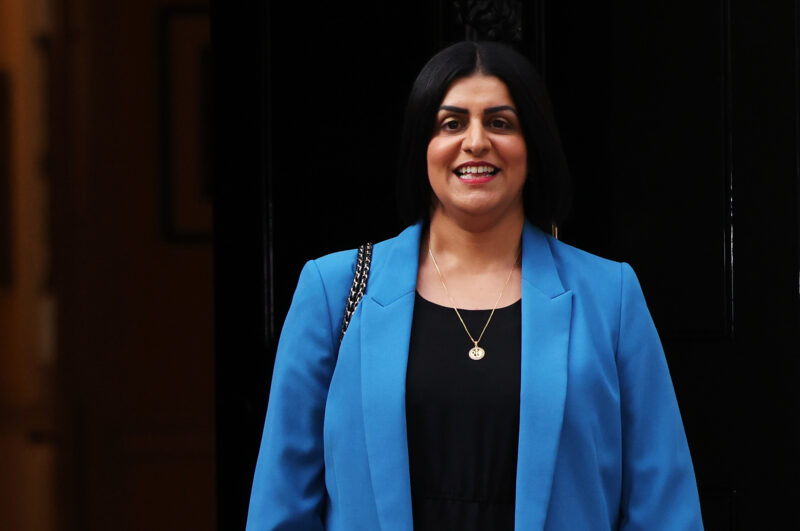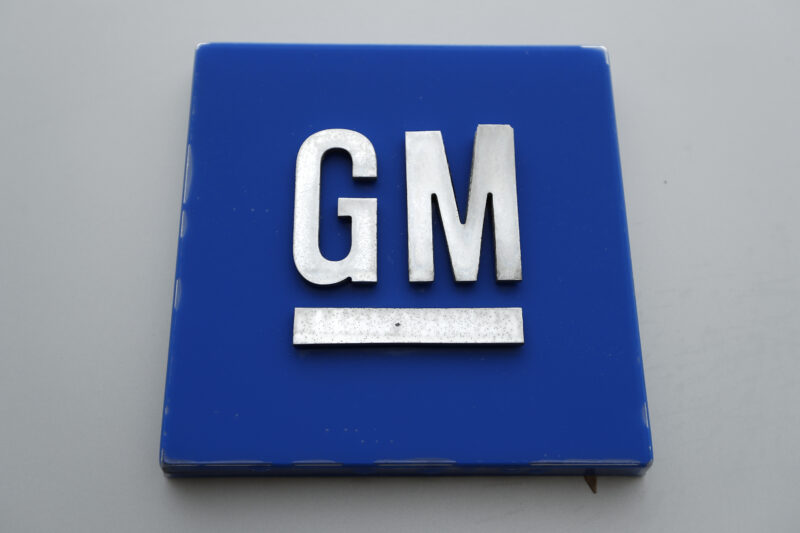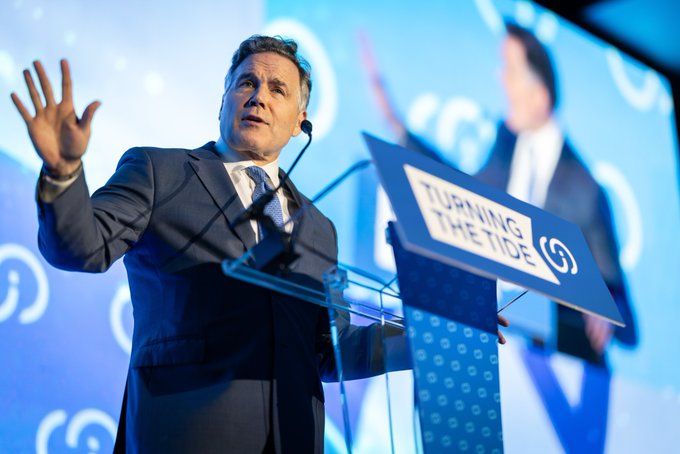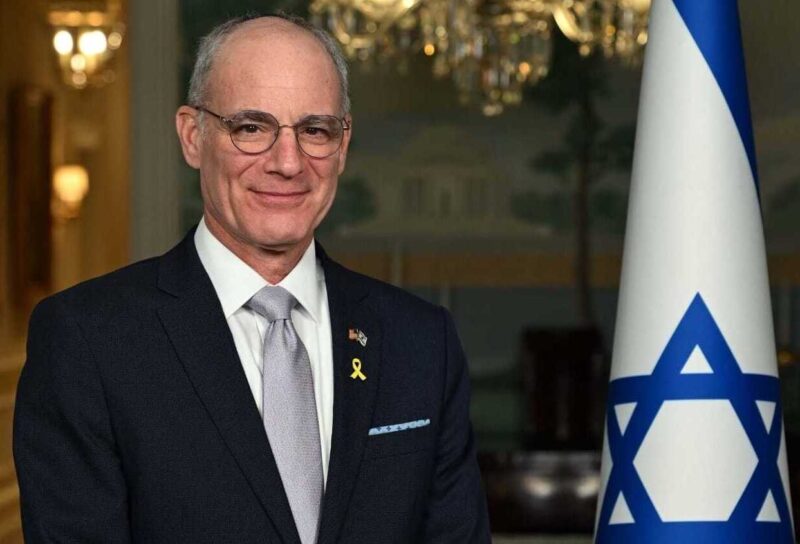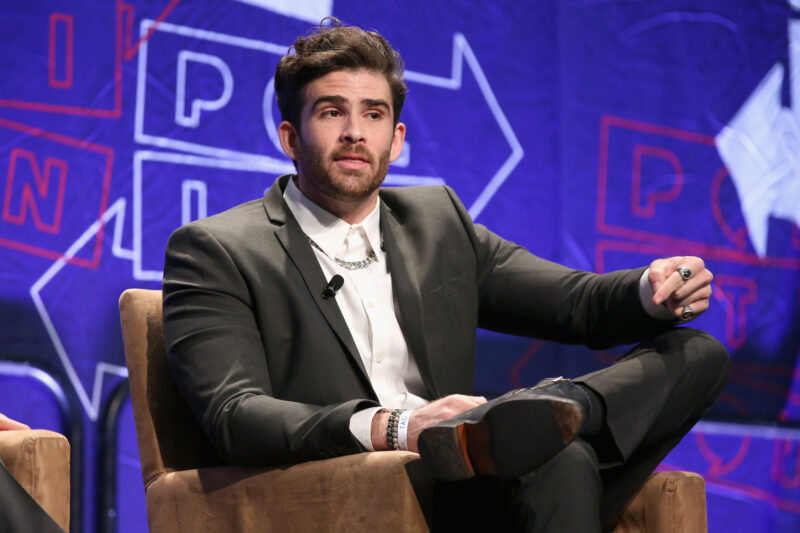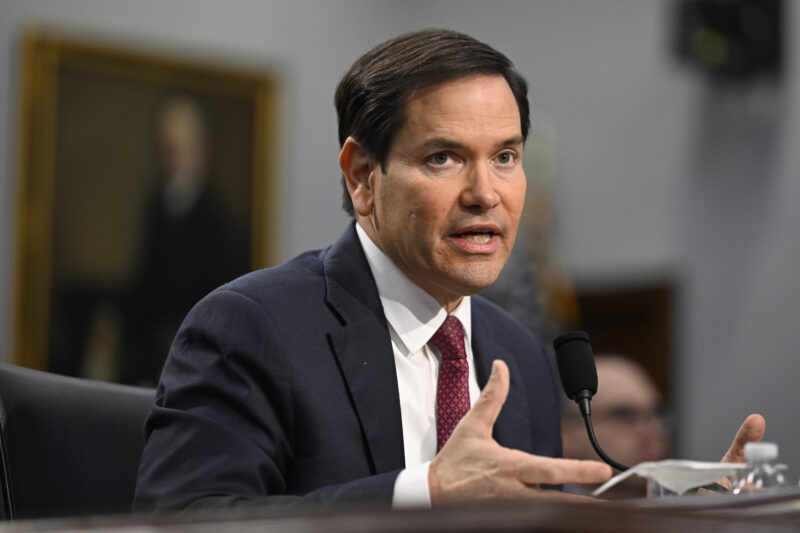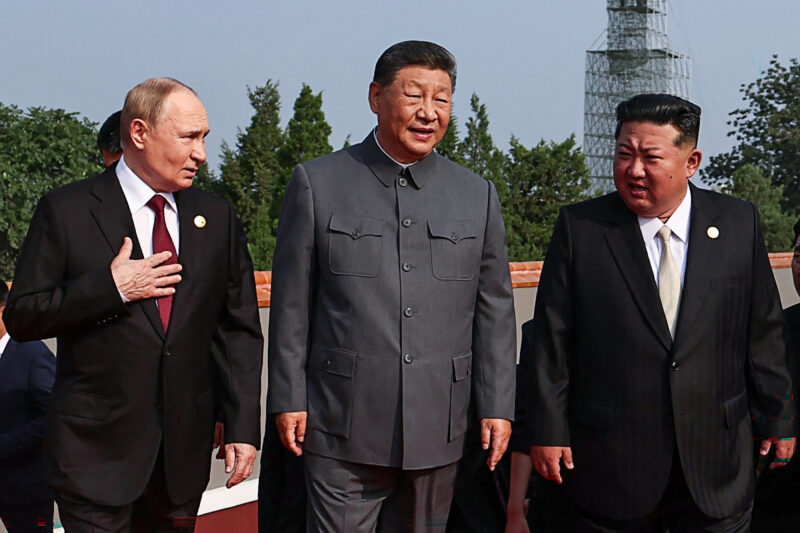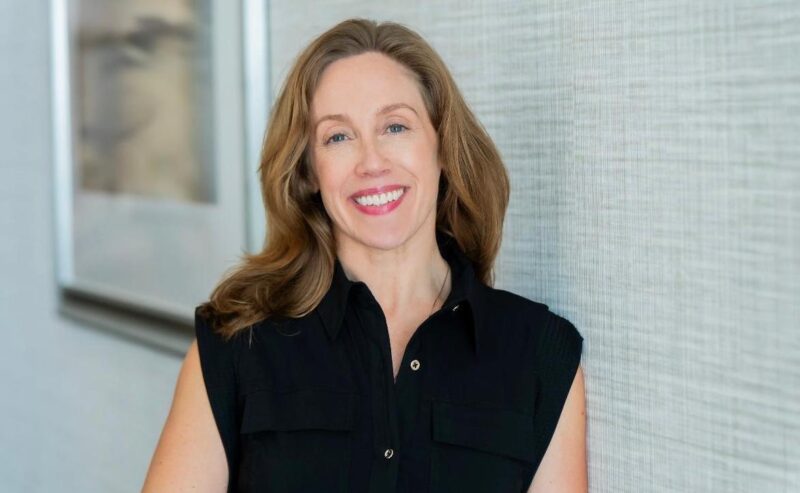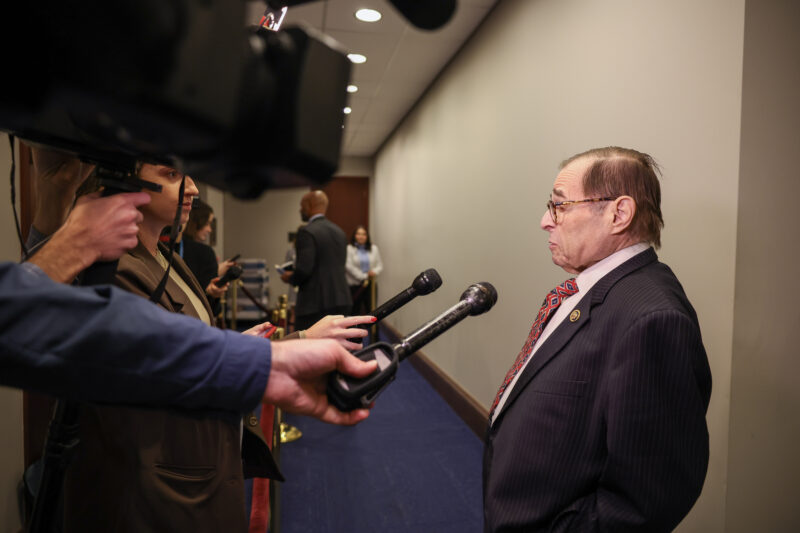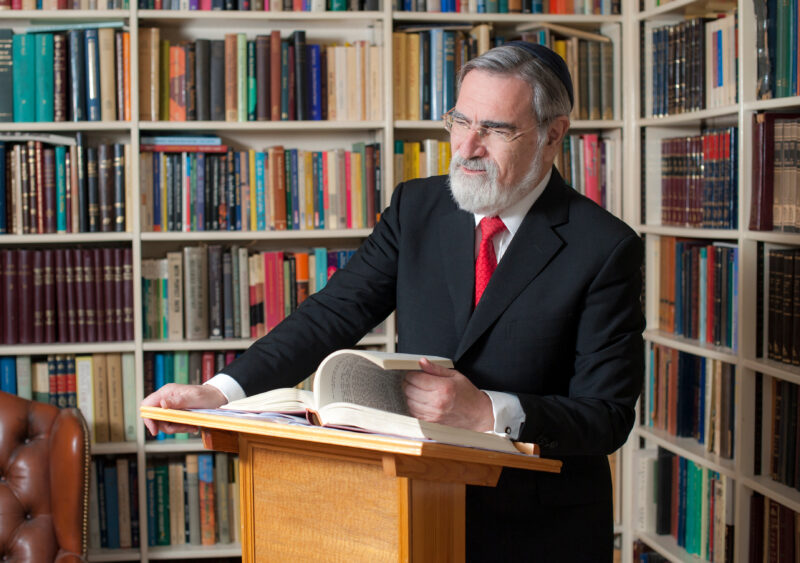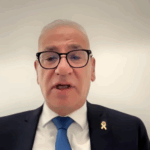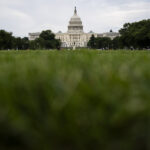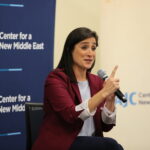CNN inks deal with Qatar to launch network hub in Doha
The financial arrangement raises concerns about the network’s ability to report freely on the Gulf state and the region

Stephen McCarthy/Sportsfile for Web Summit Qatar via Getty Images
Media City Qatar branding during day two of Web Summit Qatar 2024 at the Doha Exhibition and Convention Center in Doha, Qatar.
A newly announced agreement incentivizing CNN to operate in Qatar is raising questions among media observers about whether the network’s partnership could jeopardize its ability to report objectively on the Gulf state.
CNN said on Sunday it plans to launch a media operation in Qatar in the second half of 2025, as part of an ongoing effort to build its presence in the Middle East. The new studio will be based in Media City Qatar, which the emirate describes as “a global hub for media companies” and other businesses in the capital of Doha.
The venture will include “multi-platform content about trending stories” in the region as well as “an innovative weekly show for CNN International,” a statement said, underscoring an increased focus on digital as the network restructures amid sagging TV ratings and a declining online audience.
“CNN’s brand promise is built on being a global source for trusted, timely news and information,” Phil Nelson, the executive vice president of CNN International Commercial, said in the statement. “This expansion into Qatar will bolster our regional and global operations, adding to our long-standing footprint in the Middle East.”
But some critics are airing reservations that CNN’s agreement with Qatar, which has faced scrutiny for human rights abuses and hosting Hamas leadership before and after the Oct. 7, 2023, attacks on Israel, could introduce conflicts of interest as the network covers the Gulf monarchy and the broader Middle East. According to sources, this agreement entails an annual fee of several million dollars that Qatar will pay to CNN.
Adding to those concerns, CNN, now owned by Warner Bros. Discovery, has long faced accusations of bias in its coverage of Israel — criticism that has intensified in the wake of Oct. 7 and ensuing war in Gaza.
Jonathan Schanzer, the executive director of the Foundation for Defense of Democracies who is a leading critic of Qatar’s global influence campaign targeting academia, Capitol Hill and other areas, cautioned that “anyone getting into business with the Qataris needs to understand who their partner is,” calling the Gulf nation an “autocratic Islamist regime that supports terrorism.”
“What we have seen, with universities that have taken Qatari money, is self-censorship becomes part of the problem,” Schanzer told Jewish Insider in an interview on Wednesday. “It’s a lot of money, but it comes with strings attached.”
Whether CNN “succumbs to that, I don’t know,” he said. “But there is a risk.”
Elliott Abrams, a senior fellow at the Council on Foreign Relations who has written critically about the Qatar-funded media company Al Jazeera, which was recently suspended by the Palestinian Authority for broadcasting “inciting material,” called CNN’s partnership “an awful step, because there is no freedom of the press in” the Gulf state. “We can be absolutely sure that coverage of Qatar’s foreign policy will be constrained from now on.”
“Worse yet, CNN said it ‘will also provide training in journalism and production to students and young professionals in Qatar,’” Abrams added, referring to the company’s statement. “Choosing to train young journalists in a place where journalism is fettered by censorship and where Al Jazeera cannot utter a word of criticism of the government is a shameful decision.”
The agreement has left Gulf watchers “scratching their heads in puzzlement,” Simon Henderson, a Middle East expert at the Washington Institute for Near East Policy, told JI. “Given Qatar’s poor reputation, particularly with the U.S. Jewish community,” Henderson noted, he wonders “what CNN International’s strategy is.”
Henderson said he had recently learned that the operation “will at least start small,” with “just one program a week aimed at a youth audience without a news focus.”
CNN’s flagship regional headquarters, according to its recent statement, will remain in Abu Dhabi, the capital of the United Arab Emirates, which has previously had strained relations with Qatar over the latter’s links to terror groups.
The media partnership comes as some institutions have begun to rethink support from Qatar, which has also engaged in a vast lobbying effort to improve its image in the U.S. while also investing heavily in American higher education. Last February, for instance, Texas A&M University voted to close its campus in Doha after a U.S. research organization, the Institute for the Study of Global Antisemitism and Policy, shed light on the school’s deep financial ties to Qatar.
Even as some entities have recently faced pressure to cut ties with Qatar, the new arrangement with CNN is among several deals the country has inked with U.S. media companies amid a broader push into Middle Eastern markets.
Last year, Dow Jones, which publishes The Wall Street Journal, said that it “intends to register and operate within Media City Qatar,” following another announcement that it will bring its Tech Live event to Doha in December 2025. Meanwhile, Bloomberg said last year that it had signed a multiyear contract to power the Qatar Economic Forum through 2027.
Though such deals are now seemingly becoming normalized in the media industry, Charles Asher Small, the executive director of ISGAP, which has published a series of reports raising concerns about Qatar’s financial influence on American academia, warned that the increasing effort among U.S. news outlets to enter “a profitable arrangement with the Qatari regime diminishes their ability to engage in objective, professional journalism.”
In CNN’s recent announcement, Abdulla bin Ali Al Thani, the chairman of Media City Qatar — whose website touts “financial benefits” and “attractive incentives,” among other perks — said the network’s “expansion signals the continued growth of Qatar’s strategic role in shaping global conversations from the heart of the Middle East.”
He added in social media comments that the new deal with CNN represents “a significant moment for Qatar’s media sector” and “underscores our nation’s influence in the media landscape.”
While the terms of the CNN partnership have not been disclosed, sources confirmed to JI that the contract entails Qatar compensating CNN several million U.S. dollars a year in exchange for setting up the studio in Doha.
Michael Pregent, a former senior fellow at the Hudson Institute specializing in the Middle East, suggested that any financial support from Qatar puts the network in a compromised position. “This is the type of agreement in place in the think tanks Qatar funds and media platforms it has agreements with,” he told JI.
A spokesperson for CNN told JI on Tuesday that “the announcement with Media City Qatar centers on the provision of facilities and technical support for this new operation,” but did not provide further details on financial support from Qatar.
“Anything related to CNN editorial content is fully controlled and funded by CNN and entirely independent,” the spokesperson said, “just as with any of our operations anywhere else in the world.”




